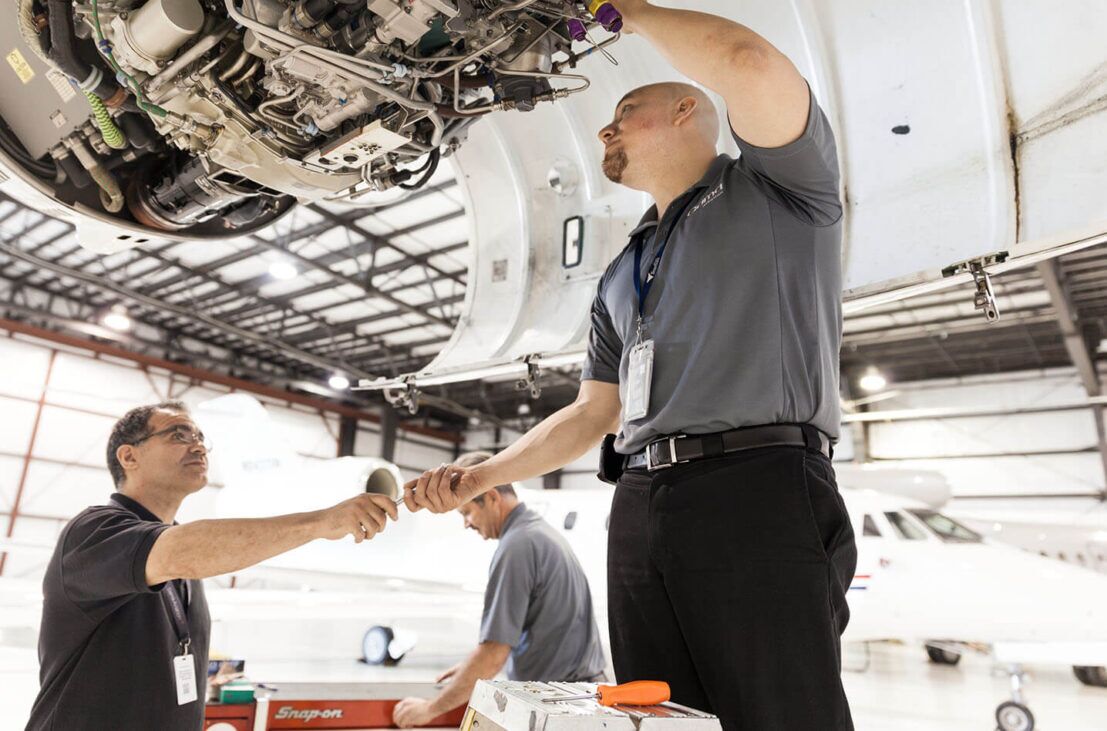
April 4, 2025
In the wake of significant new tariffs recently imposed on most imports to the United States by the Trump administration, an NBAA News Hour assembled a panel of experts to discuss the ramifications to business aviation.
Announced April 2, the tariffs include a 10% baseline charge against imports from more than 180 countries, effective Saturday. Additional country-specific tariffs up to 50% will apply as of April 9, in what the administration termed “reciprocity” for unfair trade balances and “economic policies that suppress domestic wages and consumption.”
Panel moderator Kristie Greco Johnson, NBAA senior vice president for government affairs, noted “This [has been] a long journey to this moment, but we’ve really only just begun” to see the effects from these tariffs, including what leverage they may give the administration in renewed international trade discussions.
“Countries have already taken action, or signaled they’re willing to take action, to address concerns of the United States,” said Greta Peisch, partner at Wiley Law and former general counsel for the U.S. Trade Representative. “It does seem as if this is a jumping off point to have those conversations.”
In the near term, however, “We’re going from years of stability to the [knowledge] that change, if there is change, there’s going to be more change,” said Jonathan Epstein, partner at Holland and Knight who specializes in international trade and aviation law.
The new tariffs do not apply to Canadian or Mexican imports, which are already subject to a previously announced 25% tariff unless the product falls under the United States-Mexico-Canada Agreement enacted in 2020. The administration has signaled potential changes, however, adding complexity for all concerned.
“We’ve had many buyers and sellers accelerate the process to complete the importation process into the United States,” said Ehsan Monfared, partner at YYZ Law and former board chair of the Canadian Business Aviation Association. “We’ve been negotiating purchase agreements to deal with all the uncertainty from these rolling announcements and exceptions.”
JetAviva CEO Emily Deaton said her company’s primary role is to “provide clarity in a complex and uncertain environment, in order to enable people to make decisions on their operation and future purchase decisions.
“It’s a very hot topic of conversation for those that are in an ongoing transaction,” she added. “The client base [that] is not actively transacting is now saying, ‘Until this settles out, maybe I should pump the brakes.’ That is what no one working in an aircraft sales environment really wants to hear.”
Another professed aim with the tariffs is to encourage “reshoring” overseas manufacturing operations. Peter Greenberg, international affairs director for the International Association of Machinists and Aerospace Workers, noted moving factories isn’t a quick process.
“Identifying a site, getting permits through local authorities, going through the building process, plus the need to finance these operations,” he added. “As much as we wish there could be a return of manufacturing overnight, this is not something that would even happen during the current presidential term.”
